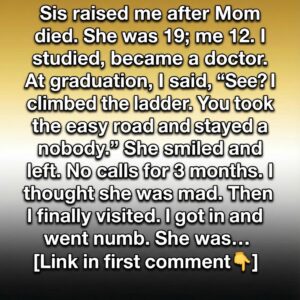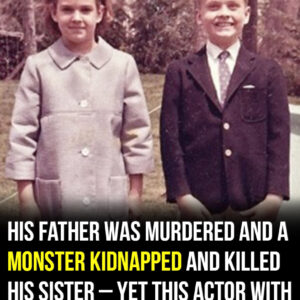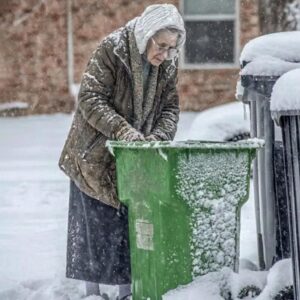Running my little grocery store was my world, not a day off in sight. While others my age dreamed of beach houses, I was stocking shelves, making sure every customer left with a smile. For years, my store was a warm spot in the neighborhood—folks grew up here, brought their kids, and shared their stories. It wasn’t just about selling food; it was about building a home away from home. But lately, something was wrong. Items vanished from the shelves—not just a candy bar here or there, but whole rows of milk, cheese, and bread. I knew every inch of my stock, so this wasn’t a mistake. Someone was stealing, and it was eating at me. One morning, Mrs. Carter, a loyal customer, came to the counter. “Clara, your dairy section’s looking thin,” she said kindly. “I stocked it yesterday,” I replied, confused. She shrugged, “Maybe it’s time to pass the store on—got any kids?” Her words stung, digging up old pain. I didn’t answer, just handed her the bag and said, “See you tomorrow.”
Kids. I had a daughter, Sophie, who left home sixteen years ago. No call, no warning—just a note saying she needed a new start. I searched for her, begged the police for help, but they said she chose to leave, so their hands were tied. It broke me, but I buried the hurt and kept going. That day, I checked the dairy fridge—Mrs. Carter was right. Half the stock was gone. Furious, I decided to act. I’d always trusted people, never needed cameras, but now I had no choice. I spent a chunk of savings on a security system and pored over the footage. Late at night, a hooded figure slipped in, grabbing items fast, face hidden. I took the video to the police, but the officer barely cared. “No face, no case,” he said, suggesting an alarm. Frustrated, I installed one, and for a few days, the thefts stopped. I thought I’d won—until I walked in one morning to find the shelves bare again, alarm silent. Mrs. Carter passed by, sighing, “Clara, we might shop somewhere else.” My heart sank—this store was my life.
Desperate, I hatched a plan. That night, I locked up, left out the front, then snuck back through the rear door. Crouching behind the counter, I waited in the dark. Hours passed, then a creak—the alarm beeped off, and a small figure moved through the aisles. I sprang up, grabbed their hoodie, and shouted, “Caught you!” They dropped their loot and squirmed. I yanked the hood back—a boy, maybe fifteen, thin and terrified. His eyes stopped me cold—they were Sophie’s eyes. “Who are you?” I demanded. He unzipped the hoodie, bolted, and I couldn’t keep up, left clutching the fabric, my mind racing. Was he hers? The thefts stopped, but I couldn’t let it go. One evening, I spotted a hooded kid leaving another store, stuffing groceries in a bag. I followed him to a modest house, my hands shaking as I held his hoodie. I knocked, heart pounding. The door opened, and there was Sophie—older, weary, but my girl. “Mom?” she gasped. I held up the hoodie. “Your son’s been stealing from me.”
Sophie’s face fell as the boy—Ethan—panicked, “Don’t call the cops!” She turned on him, “Why, Ethan?” He mumbled, “You work so much—we’re broke. I sold stuff to help.” Sophie buried her face in her hands. “Stealing’s wrong!” She looked at me, “I’m sorry, Mom. He’ll stop.” I stopped her, “Sixteen years, Sophie—why didn’t you come back? Is he yours?” Tears fell as she nodded. “Can I come in?” I asked. She let me into her small kitchen, and we talked. She’d been pregnant when she left, ashamed after ignoring my warnings about Ethan’s deadbeat dad. “I thought you’d hate me,” she said. I hugged her tight, “You’re my daughter—never.” We cried, years of pain easing. Sophie scolded Ethan, and I looked at him, grateful. His theft brought me back to my family.





